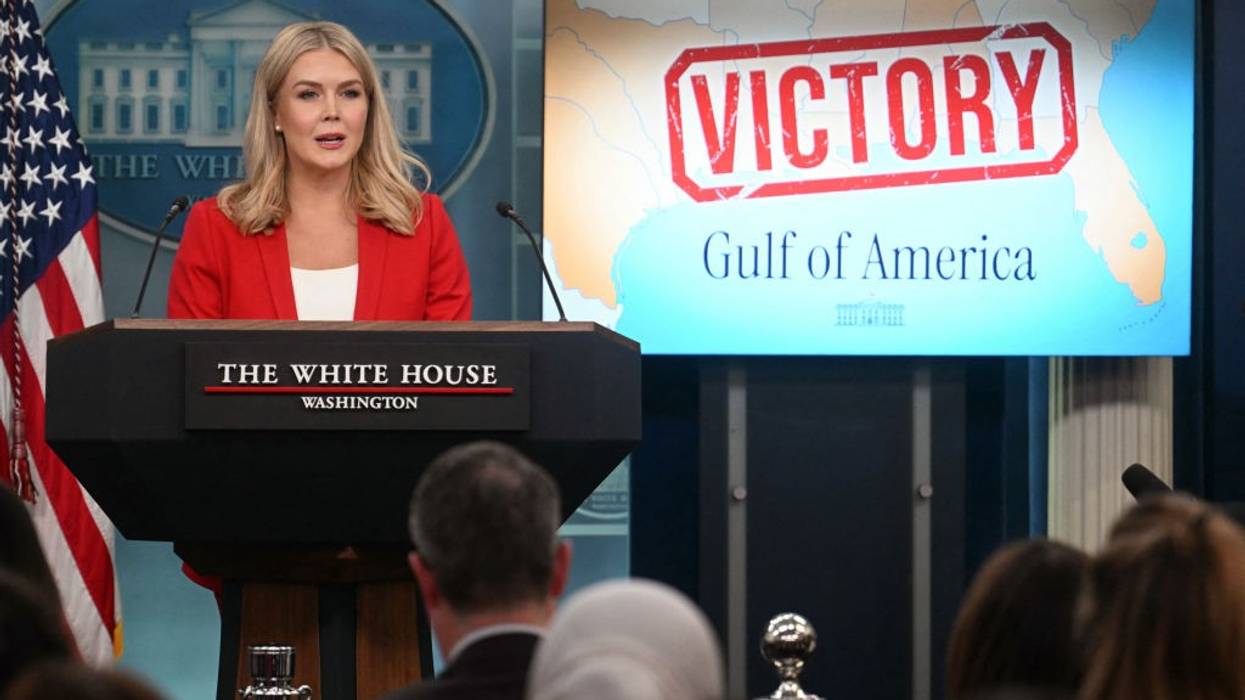The White House Correspondents' Association (WHCA) has
managed the press pool since the 1950s. While the group has faced its share of criticism, journalists and others also weren't buying Leavitt's attempt to frame the Trump takeover of the responsibility as an effort to include reporters previously denied the significant access to the president that pool members have.
"This move tears at the independence of a free press in the United States. It suggests the government will choose the journalists who cover the president. In a free country, leaders must not be able to choose their own press corps," WHCA president Eugene Daniels
said in a Tuesday statement.
As Daniels detailed:
For generations, the working journalists elected to lead the White House Correspondents' Association board have consistently expanded the WHCA's membership and its pool rotations to facilitate the inclusion of new and emerging outlets.
Since its founding in 1914, the WHCA has sought to ensure that the reporters, photographers, producers, and technicians who actually do the work—365 days of every year—decide amongst themselves how these rotations are operated, so as to ensure consistent professional standards and fairness in access on behalf of all readers, viewers and listeners.
To be clear, the White House did not give the WHCA board a heads-up or have any discussions about today's announcements. But the WHCA will never stop advocating for comprehensive access, full transparency, and the right of the American public to read, listen to and watch reports from the White House, delivered without fear or favor.
His remarks followed reporting that the WHCA was trying to quietly resolve the dispute with the AP. CNN chief media analyst Brian Stelter said on social media last week: "So why aren't more reporters and media outlets speaking out more vehemently to help the AP? In part, I'm told, it's because the WH Correspondents' Association is trying to work out a solution behind the scenes."
The WHCA
did file a motion on Sunday seeking to submit an amicus brief in the AP case before McFadden. The document states that "the government should never interfere with the operation of an independent press, nor should it demand that reporters adopt the government's messaging, framing, and, indeed, ideological worldview. Such conduct is wholly at odds with the Constitution and cannot be permitted to persist."
Daniels was far from alone in blasting the Trump administration's decision on Tuesday. The
AP reported that the Reporters Committee for Freedom of the Press called it "a drastic change in how the public obtains information about its government."
Bruce D. Brown, the group's president, said that "the White House press pool exists to serve the public, not the presidency."
The Committee to Protect Journalists said on social media that it "is alarmed by the White House's decision to pick who can be part of the press pool. Given the White House's decision to ban the AP from pool activities in retaliation for an editorial choice, it is concerning that the administration will now exert yet more control over which outlets are able to access the president and events he attends."
Jenna Leventoff, senior policy counsel at the ACLU, said that "the president does not get to handpick his news coverage, and he cannot condition access to the White House on an outlet's speech alone. The First Amendment protects the rights of outlets to make their own editorial decisions, but this decision opens the door for government punishment of outlets that don't comply with the White House's editorial demands. This is not just about silencing reporters but about dodging accountability and keeping the American people in the dark about important news that impacts each and every one of them."
Some journalists pointed to Russian President Vladimir Putin. Susan Glasser, a staff writer at The New Yorker, warned that the Trump White House is "on the way to establishing its own version of a Kremlin press pool, approved media only."
Glasser co-authored the book Kremlin Rising with her husband, New York Times chief White House correspondent Peter Baker. He said Tuesday that "having served as a Moscow correspondent in the early days of Putin's reign, this reminds me of how the Kremlin took over its own press pool and made sure that only compliant journalists were given access."
"The message is clear," Baker continued. "Given that the White House has already kicked one news organization out of the pool because of coverage it does not like, it is making certain everyone else knows that the rest of us can be barred too if the president does not like our questions or stories."
MSNBC host Symone Sanders Townsend—who served as chief spokesperson for former Vice President Kamala Harris—suggested that "the reporters should refuse to comply and should continue the precedent of deciding the pool themselves."
"Do I wish I could have picked the reporters in the press pool who were covering the VP when I worked at the White House? Some days… yes," she said. "But that is not how this works."
This article has been updated with comment from the ACLU.



